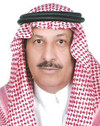Prince Sultan bin Salman: An astronaut and a gentleman

I have written in an earlier article about NASA's achievements in Arab News. And I have always been fascinated by the outer space and what NASA and other space programs around the world have done for the world and humanity. I have visited many of NASA’s sites including Kennedy Space Center in Florida. And I couldn’t miss the launch of the first shuttle. I watched the launch of the STS-1 mission from a great distance, but, seeing the shuttle Columbia taking off was something I would never forget. My interest in NASA has been since my early age. I was fascinated when I saw the moon landing in an 8 mm movie provided by Saudi Aramco in 1969. I saw this movie more than five times.
My interest in NASA increased on two occasions. One was in June 1985 when a young handsome Saudi named Prince Sultan bin Salman who was one of the astronauts aboard the shuttle Discovery on mission STS-51-G. This Prince made every Saudi man and woman very proud. And the other time I followed NASA very closely was in December 1999 when a young astronaut with the name Scott Kelley was chosen to be a pilot on mission STS-103 aboard the shuttle Discovery. Astronaut Scott Kelly and I both graduated from the same school, the State University of New York Maritime College. We are both former navy officers and we both were active participants during Desert Shield and Desert Storm in 1991 during the liberation of Kuwait.
Capt. Scott Kelley was an F-14 pilot on a US Navy aircraft carrier at the time and I was a commanding officer of a Saudi Navy Guided Missile Ship. Also, for the information of the readers, astronaut Scott Kelley is the twin brother of Mark Kelley who is also a NASA astronaut and was assigned to some space missions. Scott and Mark are the only siblings to have both traveled in space. So, how often you would watch live CNN coverage of a shuttle’s launch and say, I know the guys driving these strange looking machines.
Going back to the Saudi Space Research Program, it is Prince Sultan bin Salman who was the driving force behind the introduction of Saudi Arabia to the science of the outer universe. I have met Prince Sultan on various social events. He is the first Saudi, Arab and Muslim to be in space. And when he was aboard the shuttle in 1985, he made every young Saudi man and woman interested in the space technology and people started to follow the latest space technologies. Now, Prince Sultan is the secretary-general of the Supreme Commission for Tourism and Antiquities. This young prince can impress any audience.
I was on a visit to his office in Riyadh with a group of writers from the Saudi newspaper (Alyaum) published in Dammam and we had a long chat with the prince. I was surprised by his transparent approach to many issues in the Kingdom. We have discussed almost any subject that would come to the mind of any Op-Ed columnist. His knowledge about the outside world history and politics was very impressive. This is why seeing him bring all the aeronautic brains to attend a conference in Riyadh, Saudi Arabia, is considered by many as a way to bring the world together. But, what we can learn from people who had been to the deep space above our planet earth?
When I was watching live coverage of the shuttle Discovery with Prince Sultan or any other astronaut, you see how really small planet earth is. Our planet earth is like a drop in the ocean compared to the infinite outer space. And planet earth’s environment is the only place where humans can sustain life and be able to live. And it doesn’t worth it to fight over it among the many races. But, when the shuttle lands, you can see how big planet earth and you see that there is enough space for all humans to live together with harmony.
Through the men who went to space we saw many new ideas and inventions that helped the world grow more food and discover many water resources. The men who went to space taught us how astronauts from different parts of the world can live and work together for the good of the humanity. Being in the shuttle or aboard the International Space Station with no gravity or any kind of attachment to earth tells us that all men and women from all kind of race or color can live in peace and harmony. So, thank you Prince Sultan for inviting me to this event and thank you for exposing the Saudi young men and women to the science of space technology.
This article is exclusive to Arab News.
[email protected]
Disclaimer: Views expressed by writers in this section are their own and do not necessarily reflect Arab News' point of view










































